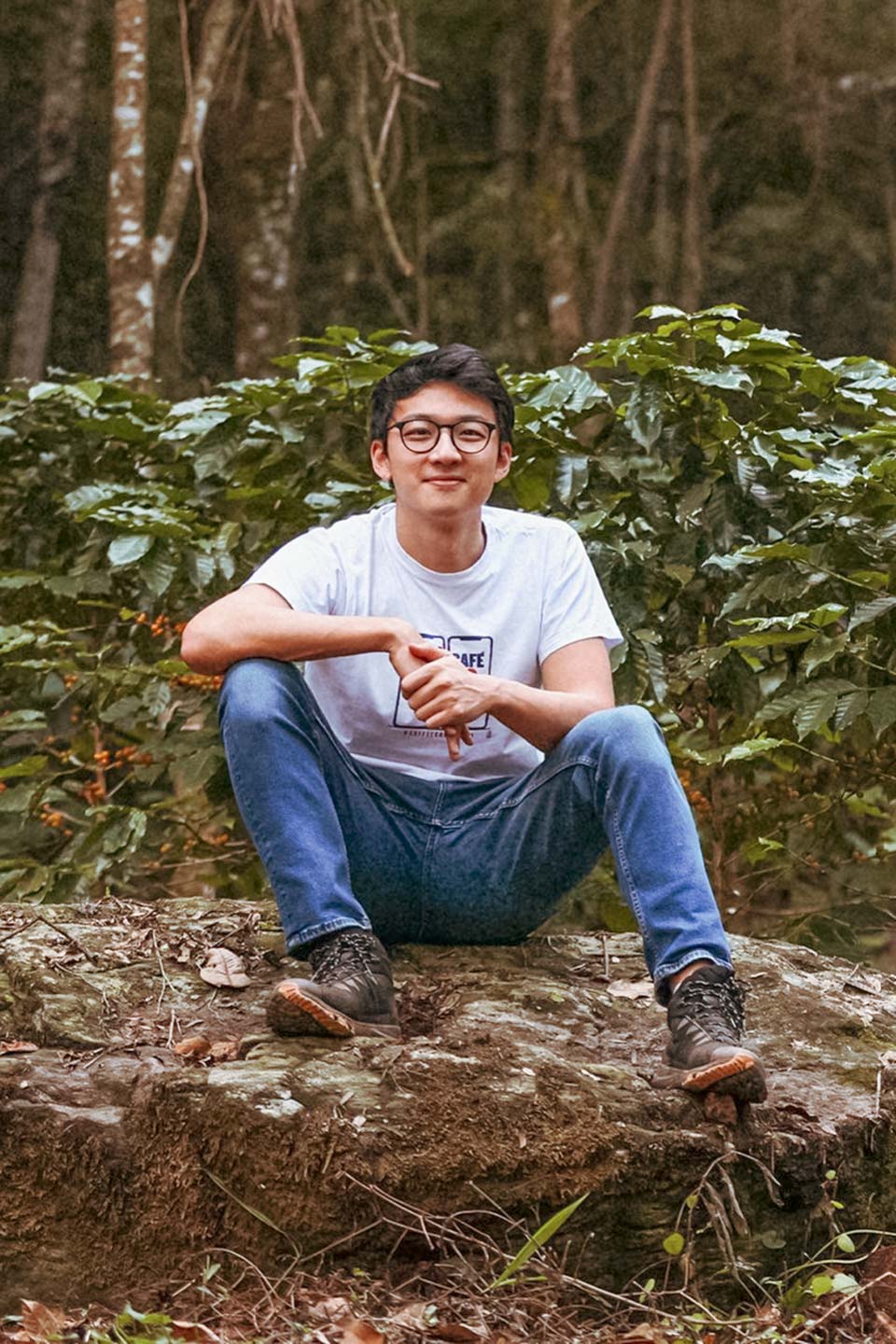
From Stereotypes to Standard: Casting Brazil in New Light
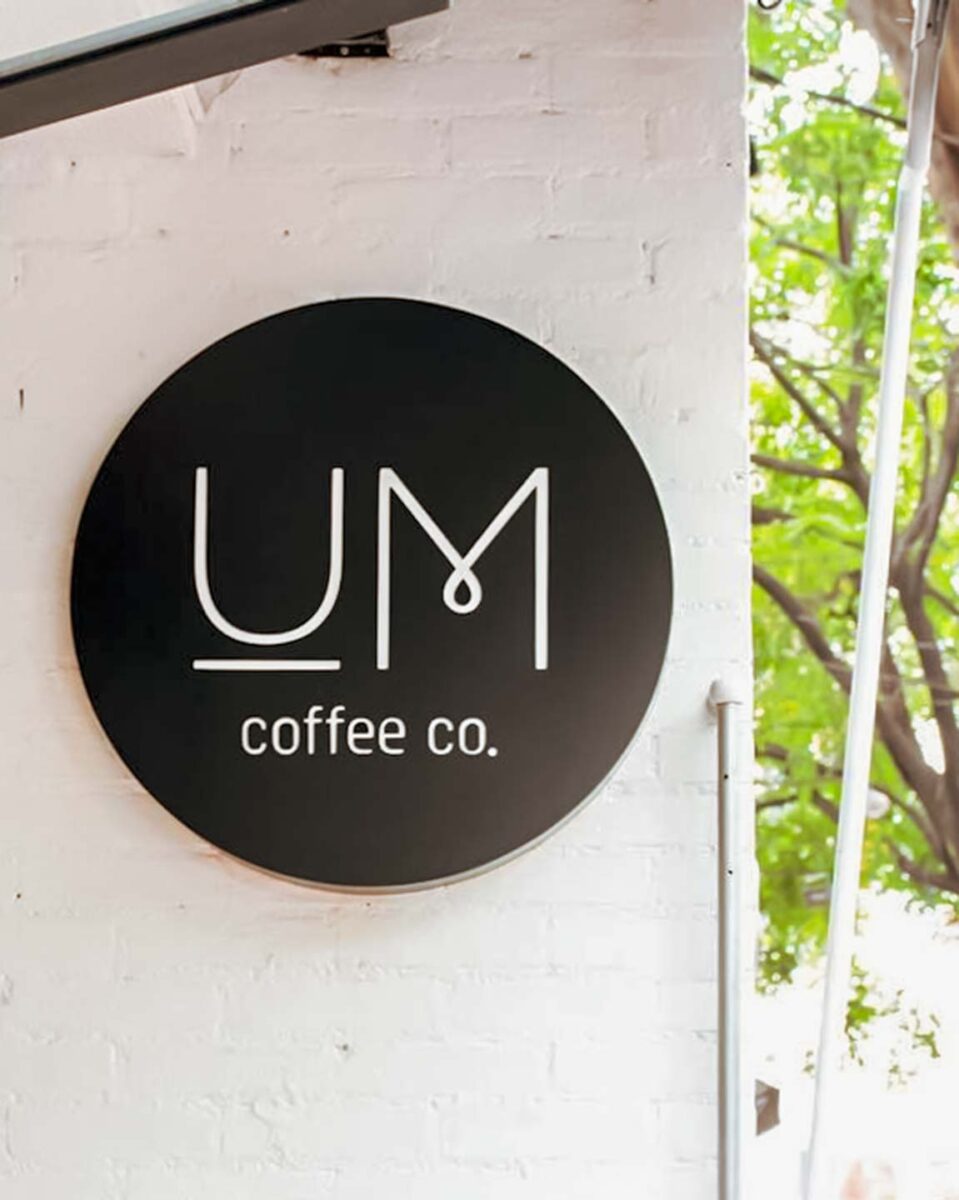
Founded in 2015, Um Coffee has been a game-changer in Brazil’s coffee industry. Not only does the company produce and export about 150 tons of coffee each year, with specialty coffee accounting for 80%, it also operates a roastery and six coffee shops in the city of Sao Paulo. In addition, their coffee school is the only one in the country that is SCA-certified, providing training to baristas, roasters, and cup tasters.
The face of Um Coffee is Boram Julio Um, a two-time national barista champion (2020, 2022). It was his father, Stefano, who first ventured into coffee production when he bought land in Sul de Minas, a region in southern Minas Gerais, in 2010. Then in 2015, Boram joined what has become a family business. To make the most of their familial bond, the duo has divided their responsibilities – Stefano focuses on production and Boram handles marketing and client relations. The family is originally from South Korea, and despite being immigrants, they have not let this be a hindrance, rising above any challenges that came with it.
In a country with a 300-year history of coffee production and an over 150-year long position as the world’s top producer, Boram has explored and shared the various nuances of Brazil’s coffee with the world. In doing so, he is bringing a new perspective to the centuries-old industry where many farms are passed down through generations of families. Now he is brewing with passion and a sense of purpose to drive the industry forward.
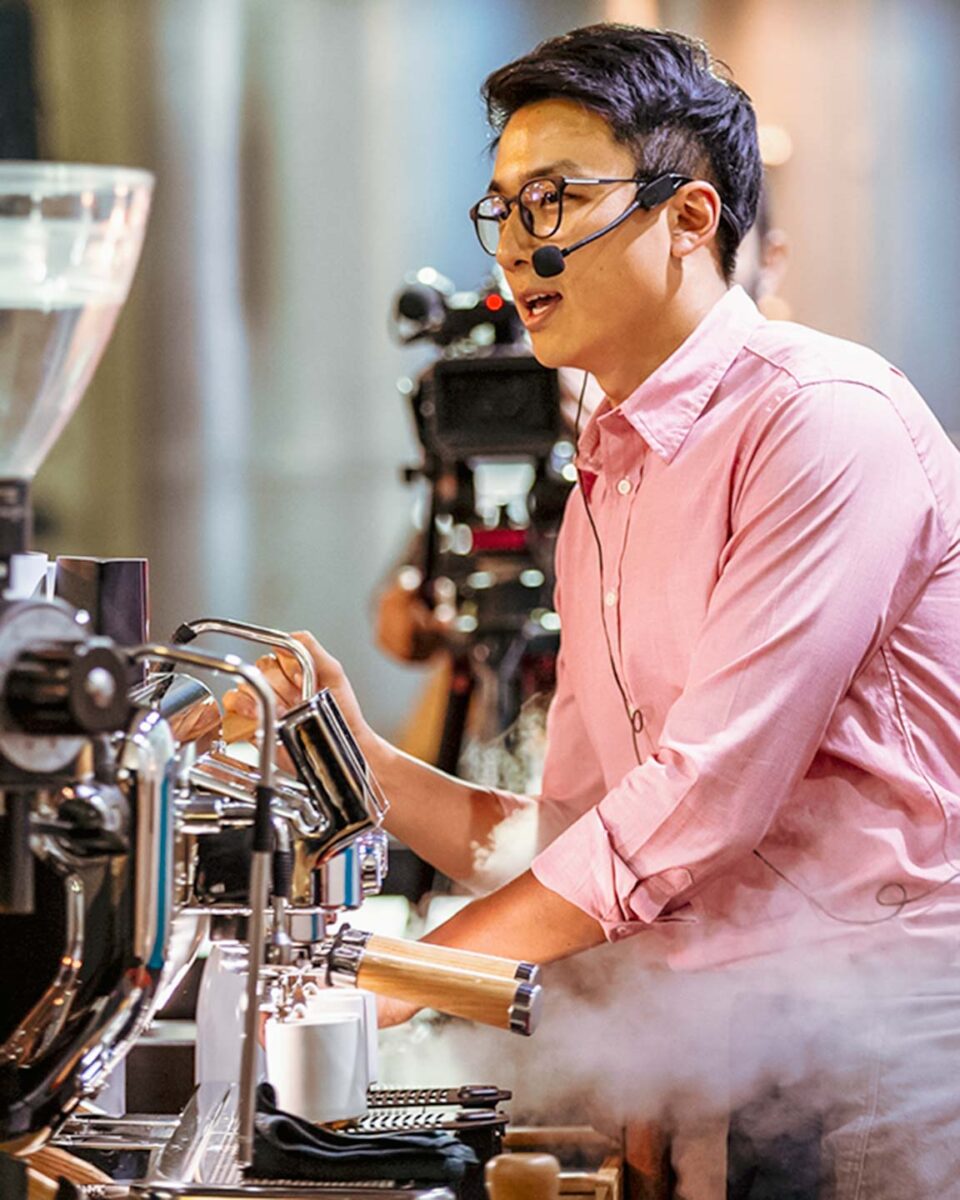
Innovation through unconventional thinking
The World Barista Championship is the pinnacle of barista competitions. Contestants consist of winners of national qualifiers and hail from around the world. Most of them are from coffee-consuming countries in North America, Europe, Oceania, and Asia. On a rare occasion, though, participants representing coffee-producing nations make it to the top of the ranks. And among the very few are Boram, who came so close to the finals in 2022, finishing 7th in the semifinals.
The day-to-day work of a coffee producer is wide-ranging. It includes harvesting and processing green beans, as well as transporting them to processors, exporters, and roasters. These duties do not require the expertise or the skills of a barista. But Boram, who sees himself as the ambassador for Brazil’s coffee industry, considers competing in barista contests as a logical choice.
“The biggest challenge facing the current specialty coffee industry is the distance between producers and consumers. If I win the World Barista Championship, I can bring more attention to Brazil’s specialty coffee. For me, competitions are like fashion shows. They provide me the opportunity to stay updated with the latest trends of the specialty coffee market.”
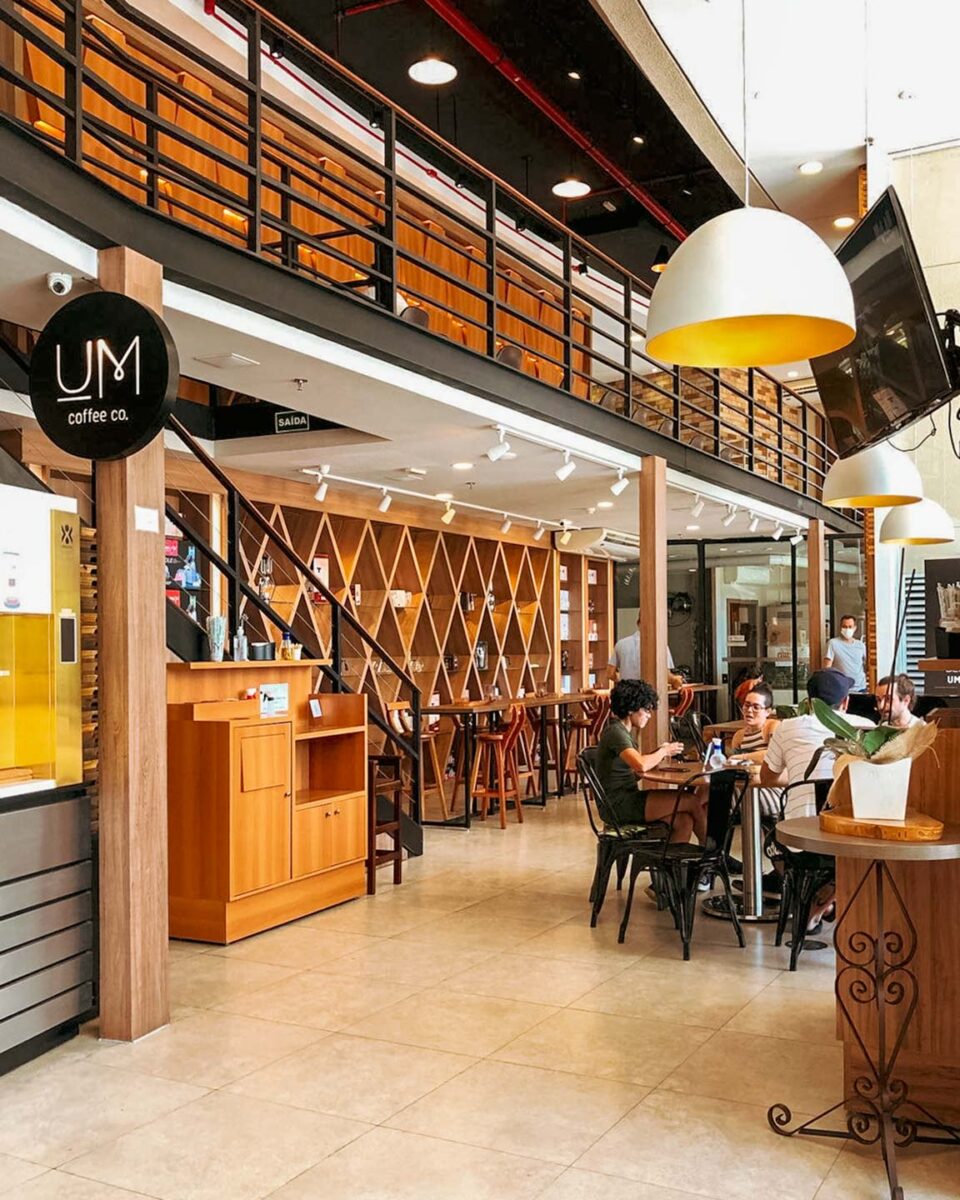
While Brazil is the second largest coffee consumer next only to the United States, its consumption of high-quality coffee is relatively low. This is why Um Coffee mainly targets clients abroad. But since their foundation, their ultimate goal has always been becoming the top Brazilian coffee producer in both the domestic and overseas markets.
To achieve that goal, Um Coffee has been opening a chain of coffee shops in Sao Paulo since 2016. These cafes serve as a place to showcase their beans, which they grow and roast in-house. Interestingly, though, they chose to open these shops in areas less frequented by crowds instead of prime locations.
“We wanted the coffee to be the main draw of our shops, not their location, stylish decor or anything else. Some people thought we were crazy for not choosing a more central spot, but we never doubted our decision. Starting a coffee business and opening coffee shops as an immigrant family from South Korea was already ‘crazy’ anyway.”
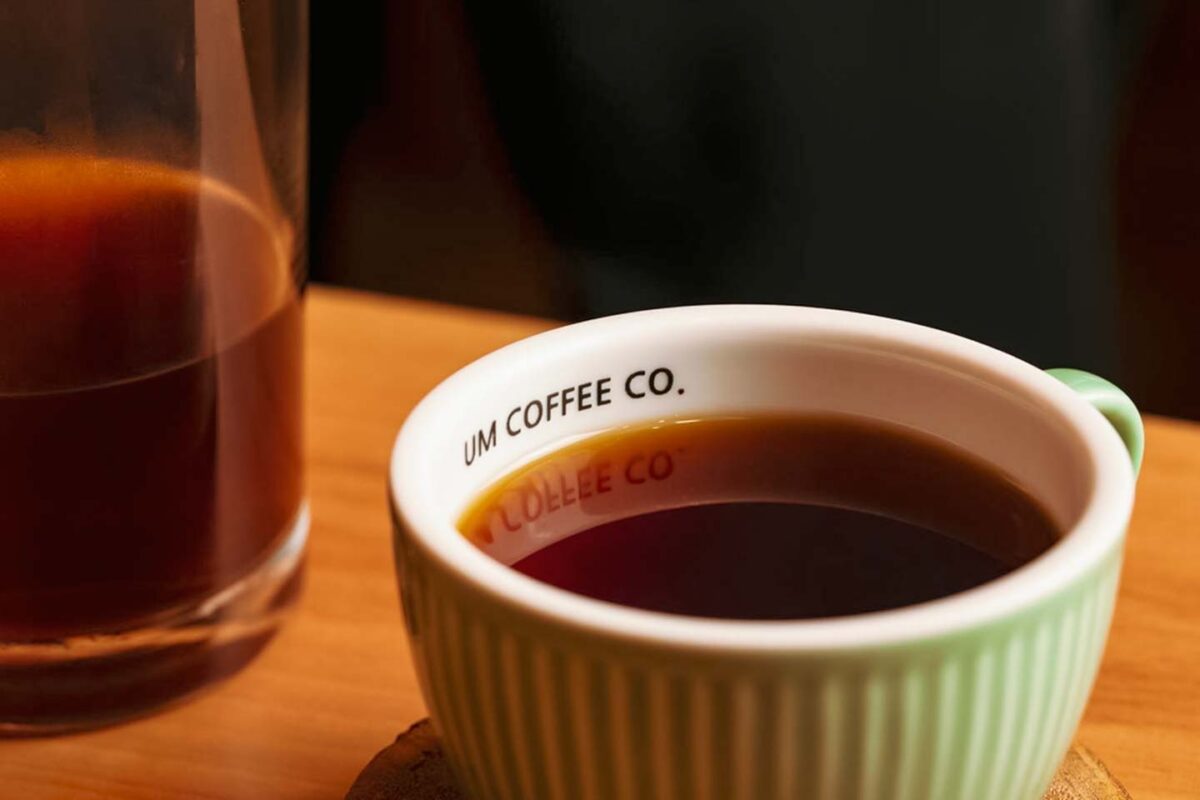
Despite the odds, this latest venture proved to be a success. On more than a few occasions, buyers and traders from abroad have stumbled upon one of Um Coffee shops and fallen in love with the flavor of their coffee. This has led to the start of new business relationships.
“Our shops are the ideal platform to highlight the best of our coffees. My goal is to elevate the value of Brazilian coffee to the level of Colombia and Panama. It’d be wonderful if more and more people start to use single-origin Brazilian beans for filter coffee”
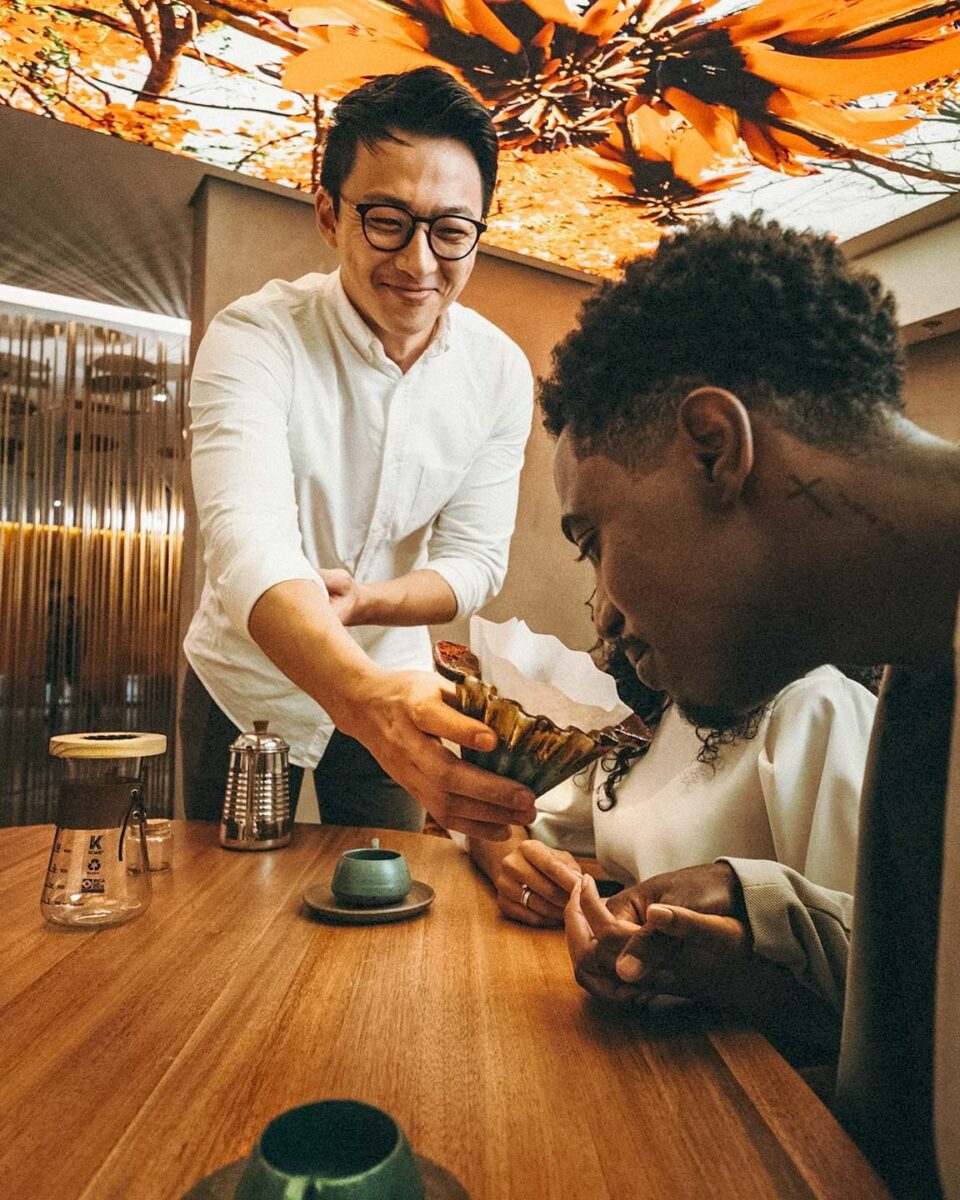
Open-mindedness advances industry
Boram’s decision to open his own coffee shops stemmed from his experiences at international trade fairs. He would present his coffee and ask for feedback, but most visitors were skeptical. Some even said there was no such thing as specialty Brazilian coffee while others told him Brazilian coffee wasn’t meant to taste good.
Brazilian coffee is often known for its chocolate, nuts, and caramel flavor notes as well as citric acidity. But it’s considered less elegant and complex than African or Central American coffees. Boram realized that in order to break this stereotype, he first needed to change perceptions within Brazil.
“Brazil is the second largest coffee consumer in the world, and the coffee industry is well-established here. So it wasn’t hard for us to get a grasp on how coffee is consumed and roasted abroad. In that sense, it made sense to start by educating people in Brazil.”
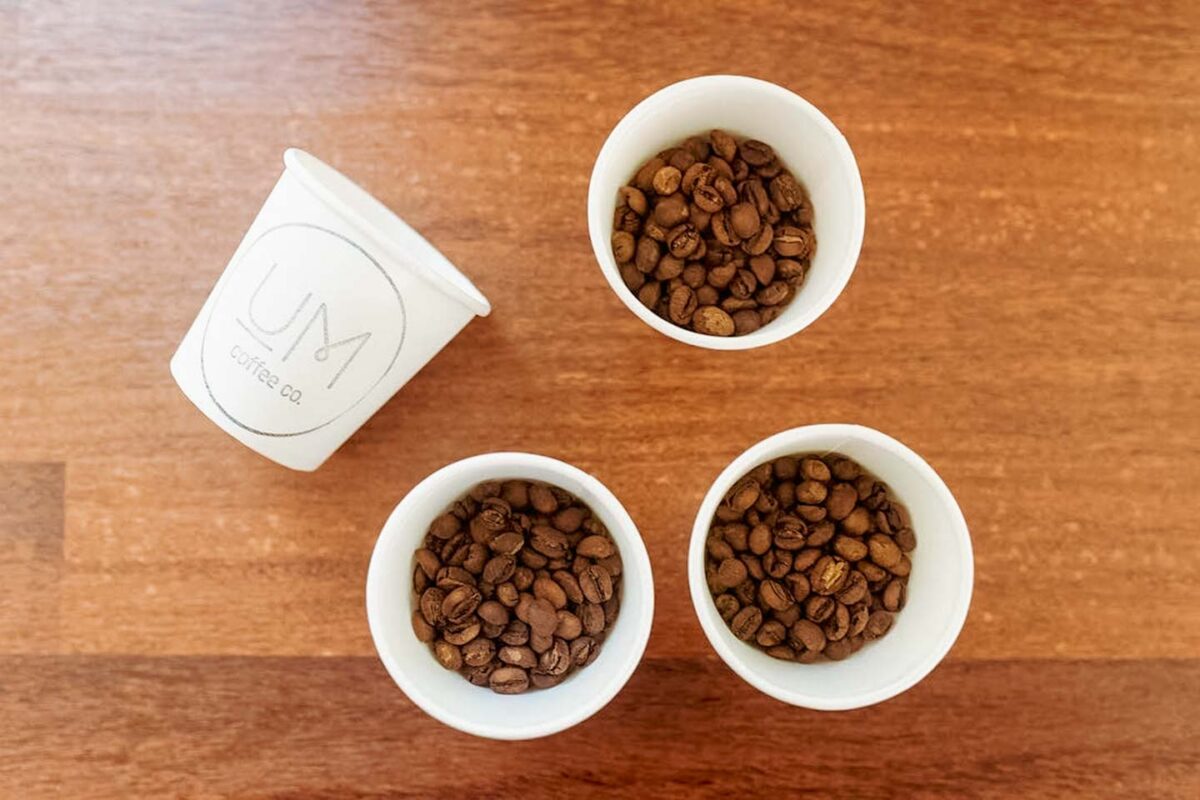
At Um Coffee, their goal is to offer the best quality coffee for the lowest possible price. They achieve this through their unique business model that encompasses roasting and direct sales. This allows them to find clients even for beans smaller than size 16. Normally, farmers would have to sell such undersized beans as commercial coffee, regardless of their quality. In other words, by using this farm-to-cup model, Um Coffee is able to reduce any financial and opportunity losses.
“Brazil has a good chance of becoming a one-stop shop for coffee. We’ve got a huge variety here – micro-lots, specialty, commercial beans, you name it. And all these different types of coffee can be found at different price points, too. There is something for every budget. My goal is to encourage people to be open to this diversity and get them to try everything we have to offer”

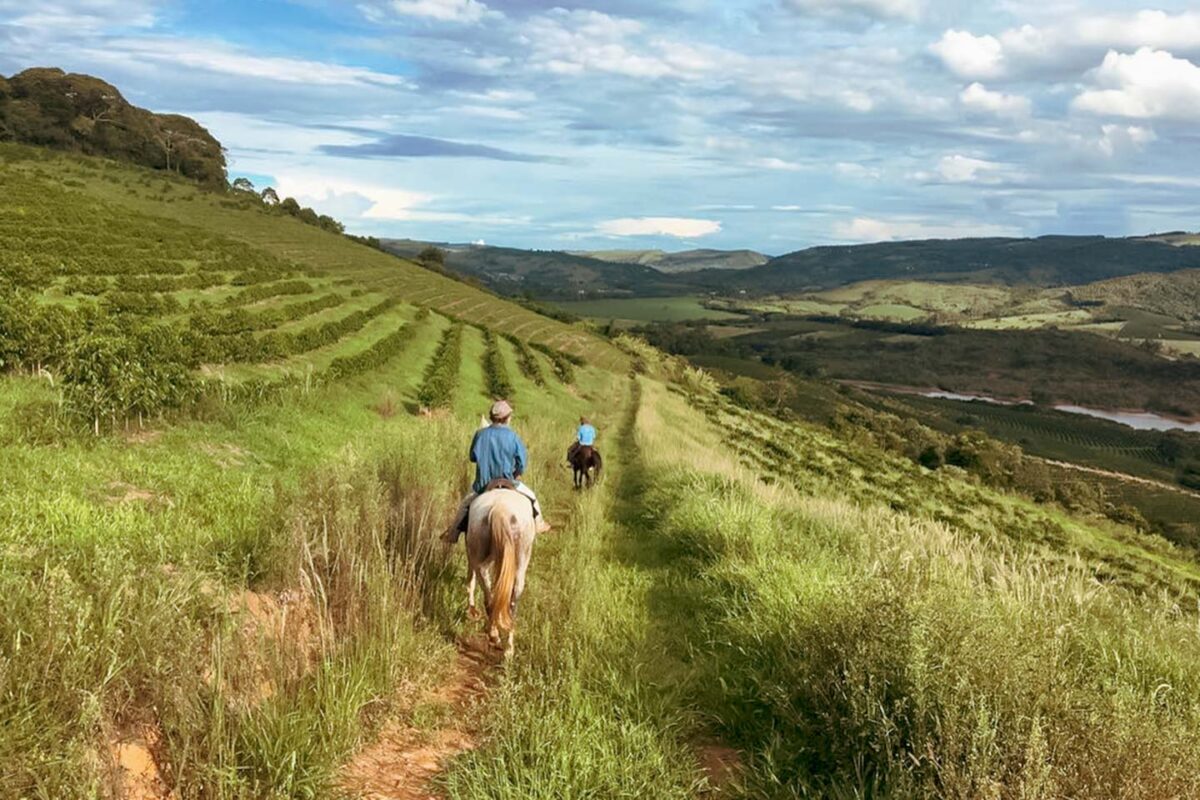
Limitless potential
In 1991, Brazil became the first coffee-producing country in the world to establish a specialty coffee association. While an increasing number of young producers have shifted to high-quality coffee production, the majority of coffee produced in Brazil is still of the commercial variety, grown on a large scale. Historically, the focus was on maximizing volume and productivity, rather than improving the quality of beans or the technology used to harvest them.
“We have two farms, one in Sul de Minas and another in Espirito Santo. Both of them are located on steep slopes, which makes it difficult to use machines for all our operations. This means that manual labor is still a significant aspect of our work. Despite the challenges, however, we have been fortunate to have connections with other coffee producers in Colombia and Panama. Their farms have been a valuable source of inspiration for us, particularly in terms of cultivation and processing methods.”
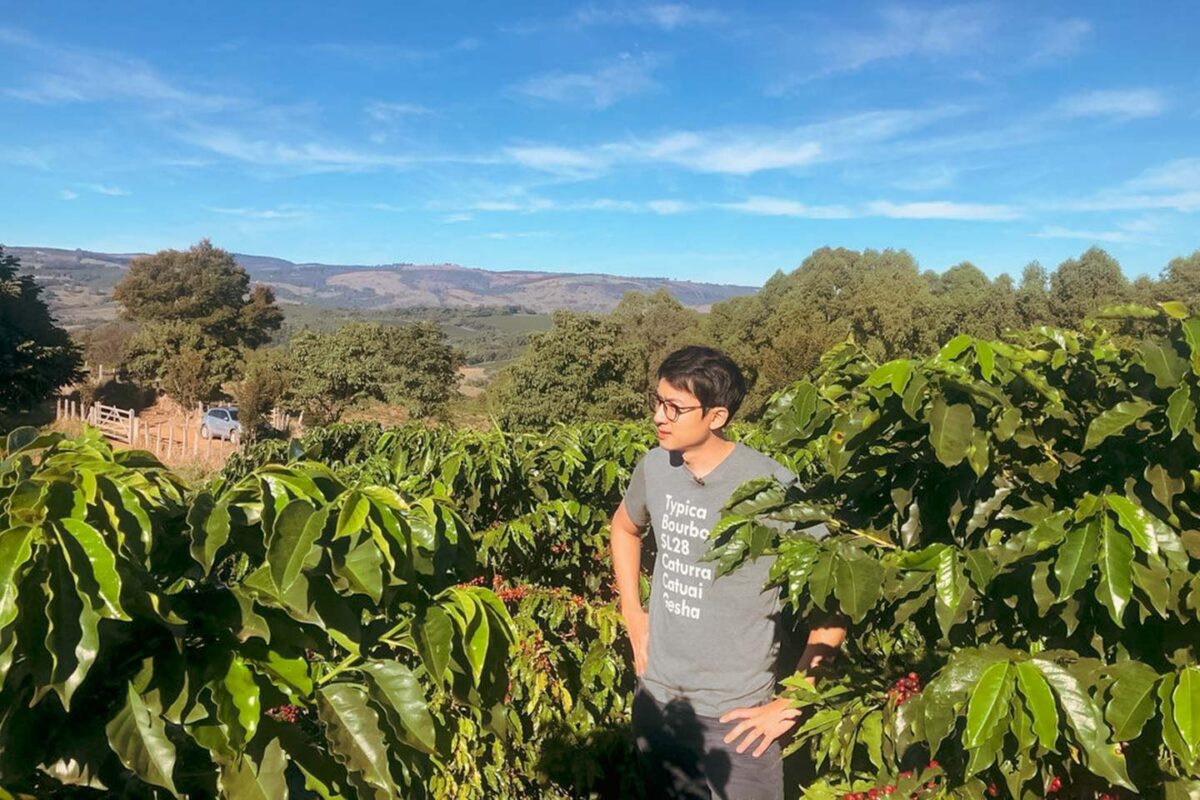
In 2019, Um Coffee started producing coffee in Espirito Santo. They chose the location for its terroir, which gives the coffee grown there a unique flavor profile, similar to that of Kenyan and Central American coffee. Its taste was beyond any coffee they’d ever had before. In one blind cupping session with South Korean buyers, Boram included Kenyan beans along with Espirito Santos coffees, but none of the buyers could tell the difference.
“Having said that, there should be many more ways to make the most of the terroir and uniqueness. Through investments in better varieties and processing, we can enhance the quality and bring it to competitions and auctions. If we break free from stereotypes about Brazilian coffee and make proper investment, the possibilities are limitless.”
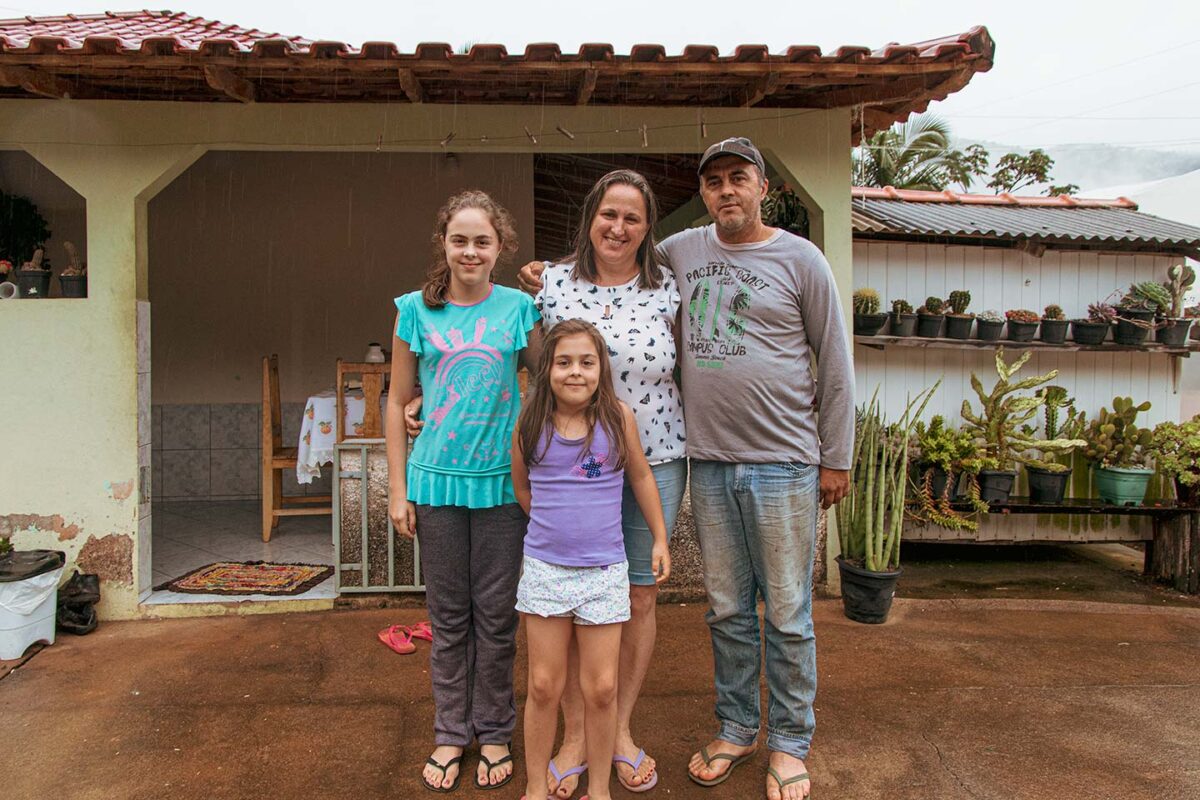
Many coffee farmers in Espirito Santo are small-holders. Some of them have long been aware of the importance of quality, and their efforts have paid dividends. Such farmers reinvest the profits they earn into further improvement, creating a positive cycle. One of them is Luciano Delpupo. In a region where a majority of farmers don’t have their own processing equipment and machinery, he owns his own washing station and is now building a dry mill warehouse.
One of the keys to the quality of his product is agroforestry*, a farming method that uses shade trees. Boram’s father Stefano started implementing the practice in his farm in Sul de Minas in 2016. After seeing some positive results there, he introduced it to Espirito Santo as well.
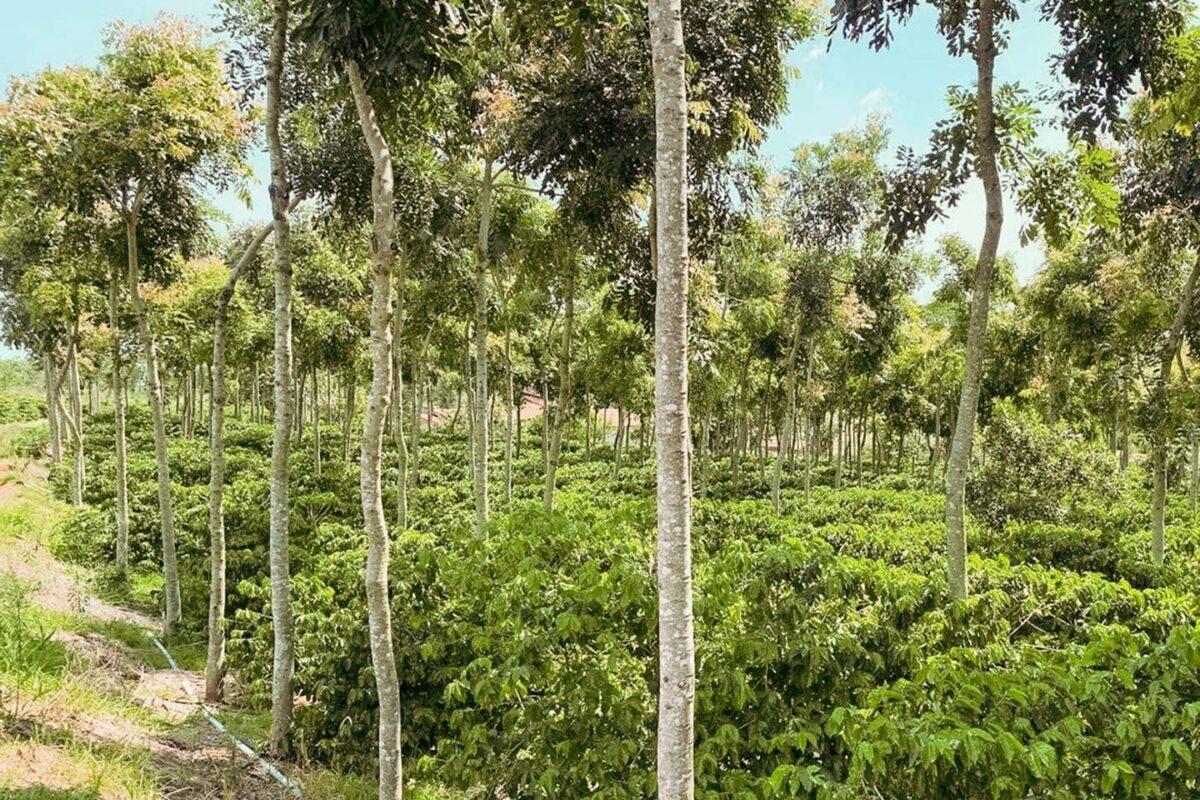
“We are probably one of the first farms in Sul de Minas to grow coffee while using the shade of trees in Sul de Minas. At first, some of our neighbors were skeptical. But some of our highest-quality and most expensive coffees we have sold came from that area.
Coffee production can be unpredictable, and whether or not you have shade trees can greatly impact consistency. We are glad we had them back in 2021. We were able to maintain the same production level from the year before, whereas other producers suffered a 30-40% drop because of frost and water shortages. But most small farmers in Espirito Santo haven’t been affected too much by climate change.
I think one of the good things about specialty coffee is how quality and sustainability go hand-in-hand. When you grow specialty coffee, making the switch to a more sustainable economic model directly leads to better quality beans and less environmental impact.”
*In agroforestry, farmers plant various trees on their farm and grow coffee under their shade. The tall trees, called “shade trees,” protect the coffee trees from direct sunlight, improving their quality while preserving biodiversity and promoting sustainability.

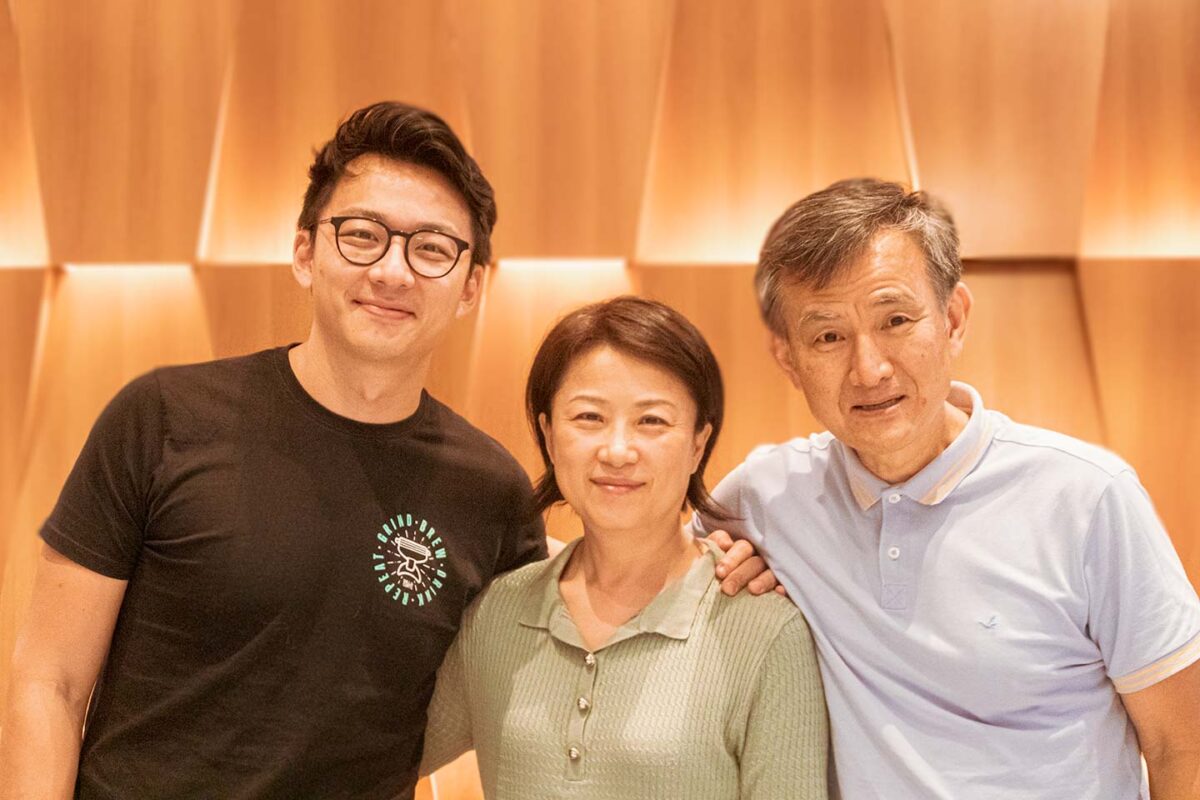
Rising from obscurity to fame
After graduating from a US university, Boram worked in financial consulting for four years, but decided to change his career path to the coffee industry. His background as a member of an immigrant family was a major factor in his decision.
Stafano Um, father of Boram, was born and raised in Seoul, South Korea. He and his family moved to Brazil in 1976, when he was 12 years old. As immigrants, the Um family had a strong sense of identity, and making their family business a success was their hope.
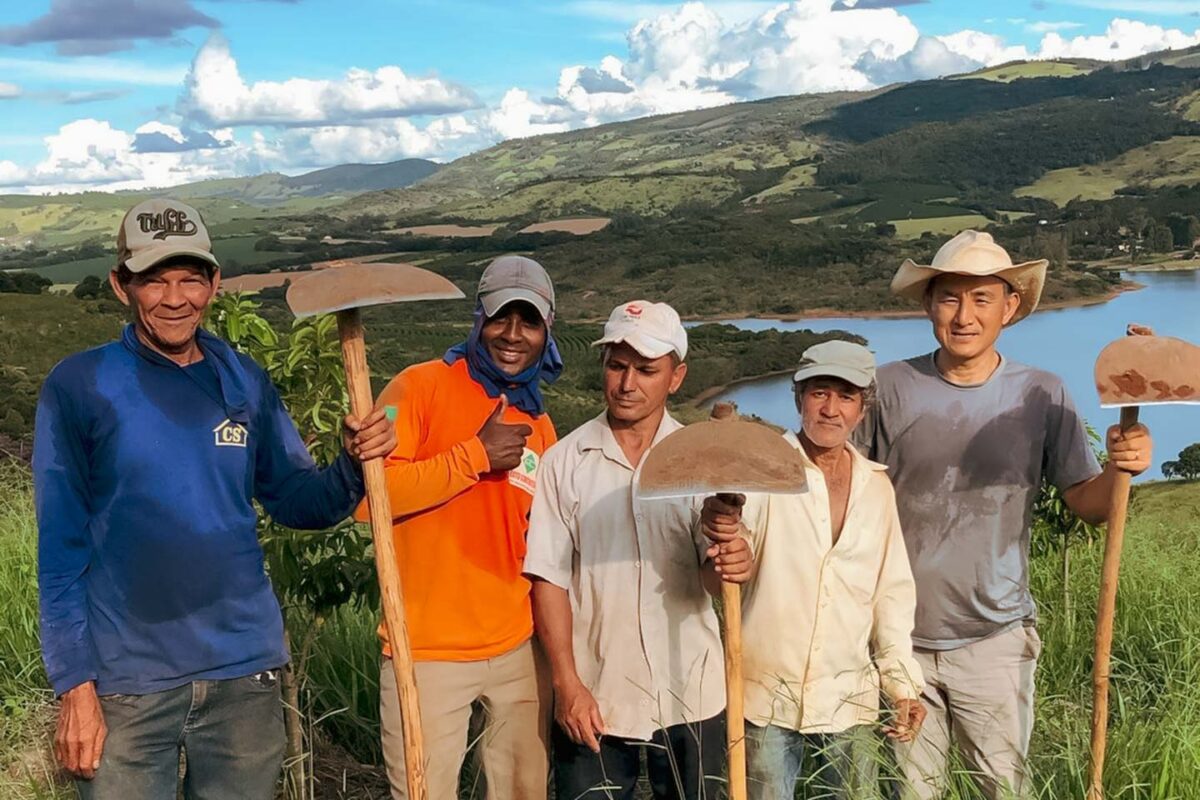
In Brazil, where coffee farming is a centuries-old tradition, farms are often passed down through multiple generations. The Ums, being outsiders, had to navigate obstacles to establish themselves in the industry and distribute coffee.
Even domestic traders rejected the Ums’ coffee. There was a time when they sought advice from a local consultant on how to grow high-quality coffee, but they were given false information that was actually intended for commercial coffee cultivation. They only realized this after they had already begun planting.
“If you want to establish your position in a market as traditional and conservative as Brazil’s coffee industry, you have to do things differently from others. And to do things differently, you have to be open-minded and innovative.”
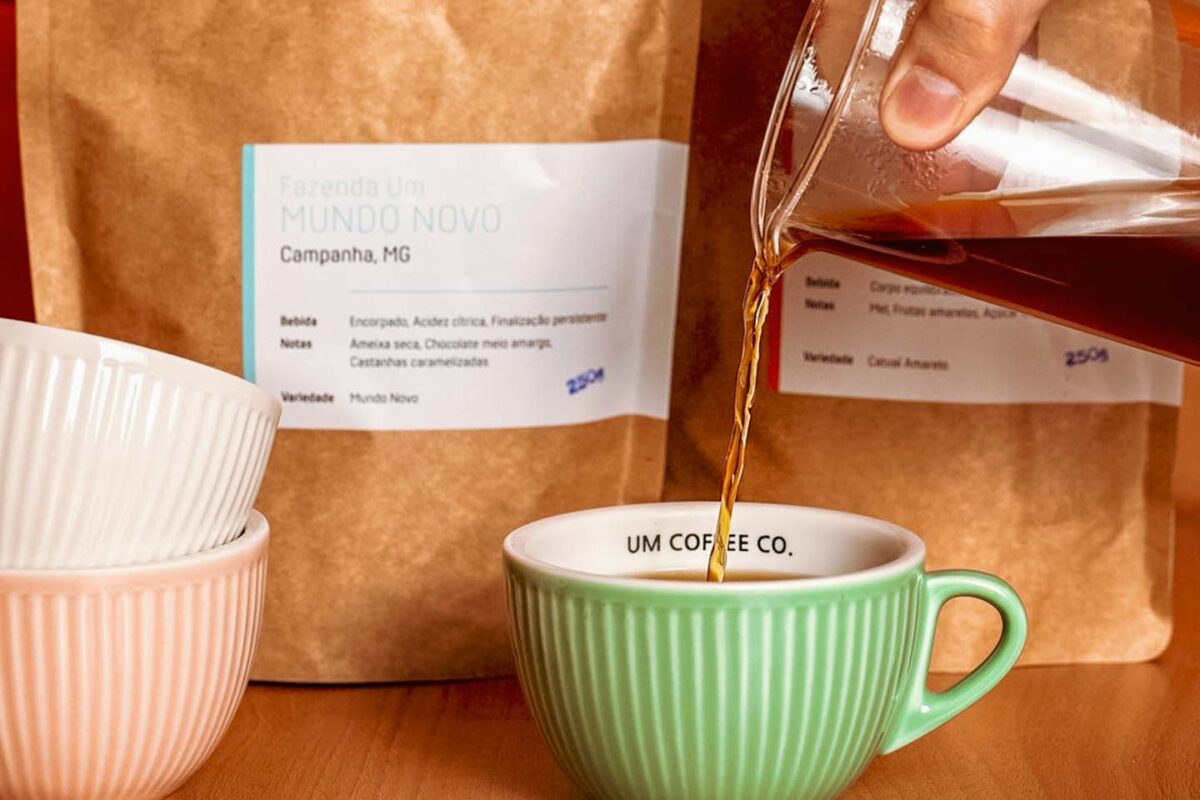
Um Coffee’s bean-to-cup model gives them multiple perspectives on the market. One of the key aspects of their business that sets them apart from their competition is their coffee shops. They received a glowing review from a renowned food critic soon after opening their first shop, which helped put their name on the map. And within a matter of six months, they were recognized as one of the best coffee shops in Sao Paulo by the city’s most reputable magazine Veja Comer e Beber. They went on to win the prestigious award, similar to Michelin stars, for four consecutive years.
“Some people didn’t have any stereotypes about what Brazilian coffee should taste like. As more people began to show their support, the market also started to accept us. And then when I became the national barista champion, people could no longer ignore us.”
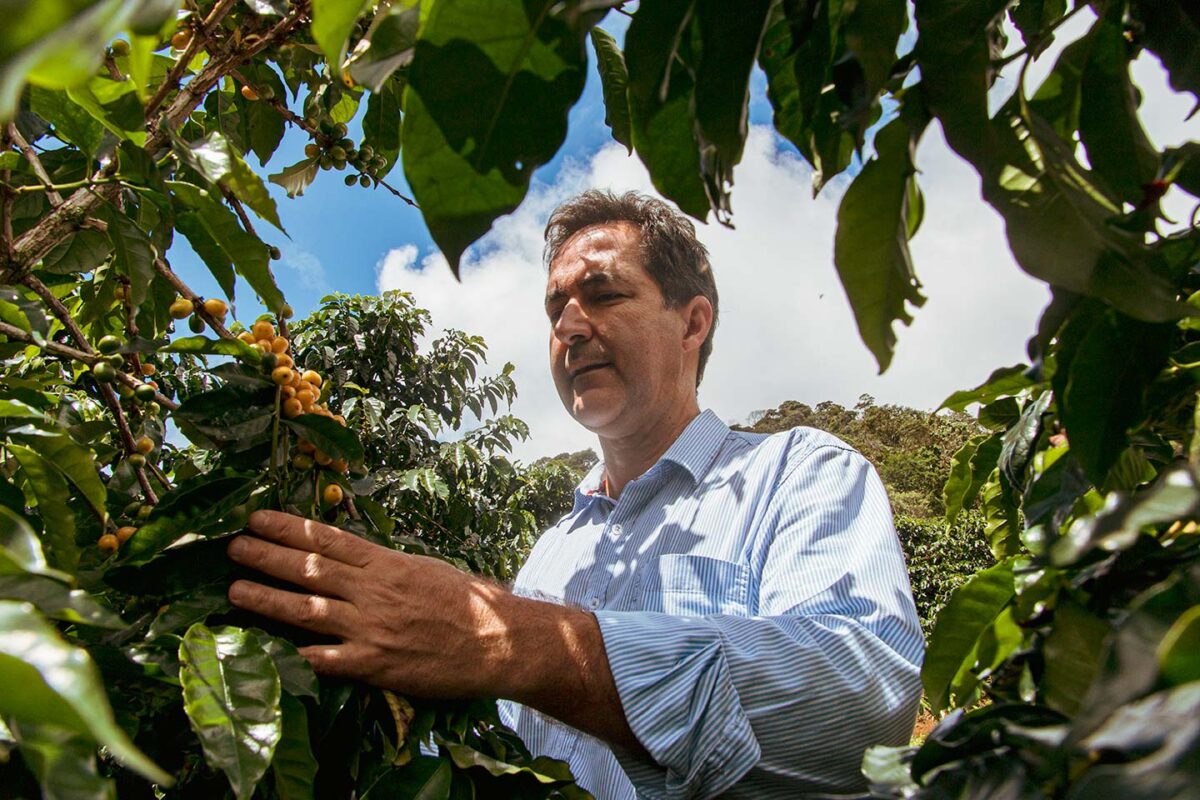
Um Coffee works with 28 small-scale farmers in Espirito Santo. The company has been receiving more interest from local farmers who want to sell their coffee, but Um Coffee only partners with those who are fully dedicated to specialty, quality, and sustainability.
“In Brazil, a lot of farms are seeing the new generation take over from their parents. It’s an exciting time for coffee production. A lot of young entrepreneurs are getting into coffee production, as well. A lot of up-and-coming farmers come to us seeking advice and information because they also want to do new things.”
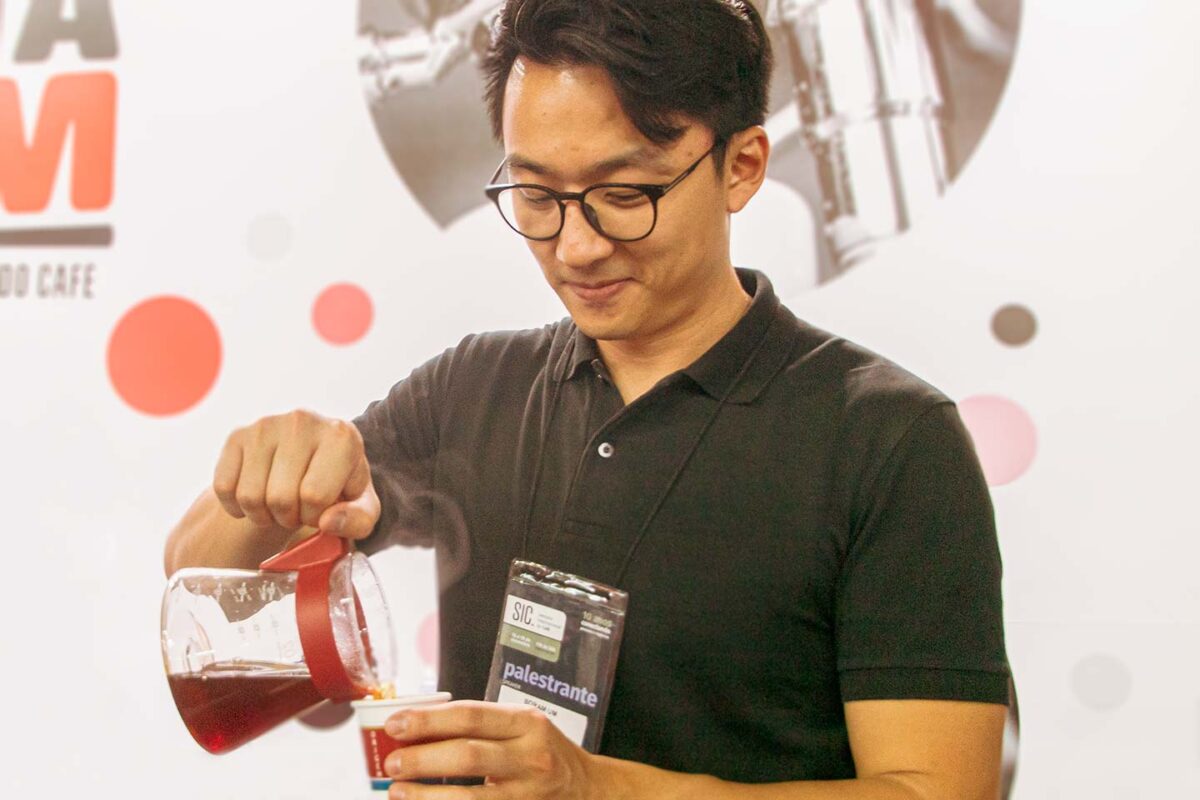
It’s been 10 years since Boram entered the coffee industry. As an outsider with no credibility and reputation in an already crowded market, Boram had to prove himself by delivering tangible results. Having overcome stereotypes and biases, today Um coffee is setting the standard for a new era, bringing fresh perspectives to the traditional world of coffee.
Text: Tatsuya Nakamichi